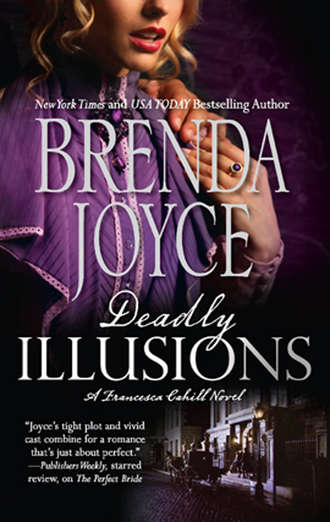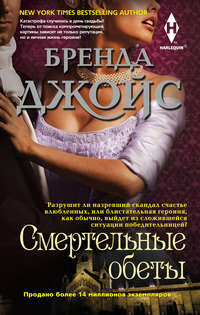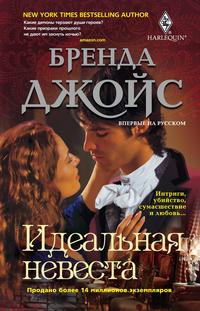
Полная версия
Deadly Illusions
Francesca knew that Maggie was very tired from the long hours she put in sewing at the Moe Levy Factory. She touched her hand. “If you do not want him to work for me any longer, I will change it.”
Maggie shook her head. “He adores you. And he no longer is out on the streets, stealing purses behind my back. I’m just distraught today.”
Francesca could sense that and she wondered why. “Gwen O’Neil found her neighbor’s body,” she said after a pause.
Maggie made a choking sound. “Is she all right?”
Francesca took her hand. “I don’t know. Bragg said she was upset. I imagine she will be home shortly, but she was at police headquarters this afternoon. We suspect it is the Slasher at work again, Maggie. But unlike the others, Margaret Cooper did not survive his latest attack.”
Maggie made a sound. “I knew them all! They live—lived—nearby.”
Francesca leaned forward eagerly. “So you are acquainted with all of the victims?”
“In one way or another,” Maggie cried. “Francis and I seem to shop for our groceries at the same time—she is so kind and so sweet—I often bump into her at Schmidt’s Grocery Store. She was so happy,” she added in a whisper. “She recently told me she was seeing someone she thought very special.”
Francesca sat up straight. “Isn’t she the one whose husband disappeared some time ago?” If so, then she was still wed.
“I know she was once married. I had thought she was a widow, actually,” Maggie said with some surprise.
Bragg had reviewed the file with her, and Francis O’Leary was no widow. “Do you know the name of the man she is seeing?” Francesca asked.
“No. She didn’t say. But she lives two blocks from here.”
“Yes, on Twelfth Street.” Francesca decided she must interview Francis O’Leary immediately on the morrow. “Where does she work?”
“She is a shopgirl at the Lord and Taylor store,” Maggie said. “But when I saw her at church yesterday, she looked terrible.. I think she wore a bandage under the collar of her gown and she had a black eye. Perhaps she is not back at work yet.”
Francesca absorbed all of that. If she called early enough, Francis O’Leary would be at home. “And you also knew Kate Sullivan and Margaret Cooper?”
“I don’t really know Kate, but we nod to one another at church on Sundays. She seems very sweet, but a bit shy. You know I’m friends with Gwen, and I met Margaret at her flat one evening when I had to borrow some sugar. She was so nice as well!” Maggie cried.
A circle of friends, Francesca thought grimly, then revised her assessment of the situation. It was a circle of acquaintances, all hardworking women who lived very close to one another and would bump into one another in the course of the day or the week. “I want you to be careful,” she finally said.
Maggie stared, pale, and then glanced anxiously at her children. “Margaret Cooper lived two doors down, Francesca, and Kate Sullivan lives right around the corner. Not even a block away.” She inhaled harshly. “Am I in danger?”
“None of the three victims had children,” Francesca said truthfully, although she felt that Maggie could very well be in danger. “Just keep your wits about you,” Francesca advised. “And I feel certain the children are not in danger. I believe the odds are that you are not, either. Still, we will exercise caution. Next Monday, I want you and the children to stay with me.”
Maggie started. “You mean in the mansion?”
Francesca nodded. This would not be the first time she had put up Maggie and her children in her father’s Fifth Avenue home. “The Slasher seems to be striking on Mondays, Maggie. It is just a silly precaution.” She smiled but it felt grim instead of reassuring.
Maggie hesitated, clearly torn. “I don’t want to impose,” she finally said.
Francesca took her hand. “We are friends! It is not an imposition.”
“I’ll think about it,” Maggie returned slowly. “Maybe the Slasher will be caught by then.”
“I do hope so!” Francesca cried fervently.
Maggie smiled a little, perhaps at Francesca’s passionate outburst. Carefully she gazed at the table. Not looking up, she asked softly, “Has Evan returned home?”
Francesca did not answer at first. She sat back in her chair, recalling how solicitous her brother had been toward Maggie and her children when she had been living briefly with them—and ever since. Not for the first time, she wondered if she had witnessed a romantic spark between them. But it was an impossible match—a seamstress from the Lower East Side and the son of a millionaire. Of course, Evan had recently been disowned by their father. “No, he continues to reside at the Fifth Avenue Hotel. I am so very proud of him for standing up to our father.”
“I heard he took employment,” Maggie said, her eyes still lowered.
“Yes, as a law clerk.” Society thought it unbelievable— Francesca had heard the gossip—that he would walk away from his family and his fortune.
Maggie paused. “We haven’t seen him since he came to take the children to the park last month.”
Francesca did not know what to say. “I haven’t seen him very much since he moved out. This has to be hard for him, working as a clerk and living in a hotel.”
“I supposed he is still seeing the beautiful countess Benevente?” Maggie murmured.
Francesca did not know what to say or do. Then she decided the truth was the best course. “Yes, they are often seen to gether. Evan has always gravitated toward bold women like Bartolla Benevente.”
Maggie finally looked up. “She is so beautiful. They make an astonishing couple. If he marries her, it will be a good match. Don’t you agree?” And she smiled, but it did not reach her blue eyes.
Francesca could not mistake what she was witnessing. Maggie Kennedy was fond of her brother in spite of the huge so cial gap between them. Francesca was at a loss. Even if Evan shared her feelings, it would be extremely difficult for them to make a match. But Evan did not return her feelings, clearly, as he was so thoroughly preoccupied with the beautiful countess. “Yes, it would be a socially acceptable match.” She hesitated. “But I am not sure Evan is ready to marry anyone, Maggie. Not only is he a bit of a rake, you know, but after leaving the family the way that he did, I think he needs a bit of time to reorganize his life.”
Maggie stood abruptly. “I am sure he will come home one day. I think I’ll make that tea.”
“That’s a good idea,” Francesca agreed, relieved to end the subject of her brother.
NIGHT HAD FALLEN, the day’s spring temperature suddenly gone. Francesca shivered as she stepped out onto the sidewalk, wishing she had her coat with her. Now that the workday was over, the neighborhood had come alive with the sights and sounds of its residents. Men and women were coming and going on the streets, a gang of adolescent boys was playing stickball, ignoring a heavily laden passing dray. There was tre mendous activity in a corner saloon, and many windows were open, candles burning inside. The aroma of roasting meats wafted onto the gas-lit street.
Francesca had not taken the Cahill coach downtown, and now, glancing around, she regretted it. Obviously there were no cabs in this area. If she walked four blocks, she could catch a horse-drawn omnibus crossing town and then hail a cab from Union Square. But it was dark now, and many of the passersby on the street were a rough, rowdy lot. In fact, she mused as one of a pair of brawny men passing her turned to look at her in her fine skirt and jacket, anyone could be the Slasher.
But he would not strike again until next Monday—if he chose to follow the pattern he had set.
She wished that she was not alone. Of course, she did have a small pistol in her purse. She had learned from experience to carry protection. Francesca started forward, clutching her simple black bag. Hart would murder her for being out in such a neighborhood after dark, alone and without transport.
Someone hurrying her way, a child with him, bumped into her as he passed. Francesca tensed, continuing on, when she was seized from behind. Her heart slammed with fear.
“Miss Cahill!” a woman cried, her brogue as thick as an Irish bog.
Francesca turned, relief swamping her, and met not the gaze of a man, but that of a frightened, distressed woman. An instant later she realized that Gwen O’Neil had grabbed her and that Bridget stood closely by her mother. “Mrs. O’Neil! You startled me.”
Gwen released her. Her eyes were wide in her blanched face. “I cannot believe it’s you! A friendly face—a sight for sore eyes,” she cried.
Francesca was now calm and attuned to the fact that Gwen was far more than relieved to see her. The woman looked ready to leap out of her skin from fear. She smiled at Bridget and instantly realized that the eleven year old knew all about her neighbor’s murder. She stood stiff and frozen beside her mother, her eyes huge in her small face. “Mrs. O’Neil,” she began, smiling and hoping to calm them both. But this was an opportunity not to be missed. Never mind that she was terribly late for her mother’s dinner party—she would see these two safely home and catch a brief interview. Or perhaps even a substantial one, at that.
But Gwen jumped as if she had caught on fire, glancing wildly around her, her eyes huge with fear. Francesca took her arm. “Mrs. O’Neil? What is it? What’s wrong?”
Gwen’s dark eyes met hers. She opened her mouth but no sound came out.
Bridget was the one who spoke. Tears thickened her voice. “We’re bein’ followed,” she cried.
CHAPTER TWO
Tuesday, April 22, 1902 7:00 p.m.
FRANCESCA GLANCED AROUND but saw nothing amiss. Men and women continued to pass on their way home after a long day’s work and the boys continued to slam the ball around in the cobbled street with their sticks. She faced Gwen grimly. “Let me take you up to your flat,” she said.
“Would you?” Gwen cried in obvious relief.
Francesca took her arm. “Let’s go,” she said kindly. As Bridget preceded them, she glanced over her shoulder one more time. She half expected to see the Slasher standing against the tall iron street lamp, watching them. But nothing on the street had changed.
There was no light in the small entry hall, and the stairs were also dark with shadow, but that was not unusual in these terri ble tenements. “I assume there are no gaslights?”
“No,” Gwen breathed, fumbling in her shopping bag. “But I have a candle and matches.”
Francesca carried a candle and matches as well, but she waited for the other woman to light the wick. Gwen’s hands were shaking so badly, though, that Francesca took the candle and match from her, struck a spark and lit it. Instantly the small, grim entry was illuminated. Someone had hung a cracked mirror on one peeling wall in a futile attempt at decoration. “Let’s go, Bridget,” she said with false cheer, shivering.
They hurried upstairs in single file, the steps creaking beneath their feet. Gwen and her daughter lived on the second floor, as had Margaret Cooper. When they passed Margaret’s flat, Francesca saw that the door was padlocked, meaning that the police had left. The sign Police Line had been nailed to the door. When she and Bragg had left the flat together, a photographer had just arrived. Bragg had conceived of the singular notion of photographing the victim and the crime scene for reference during the investigation. It was a brilliant idea.
Gwen unlocked the door, her hands continuing to tremble. The moment they were all inside, she said tersely, “Bridget, light another candle,” as she quickly bolted the door behind them.
Francesca wondered how she was going to live in such a state of fear. She studied her from behind as the other woman turned, managing a smile and unpinning her straw hat. instantly, her hair tumbled down.
Francesca stiffened. She already knew that Gwen had dark red hair, but now she was struck by the fact that it was almost waist length, rather curly, and very much like the hair of Margaret Cooper. And while Gwen and Margaret did not look at all alike—Margaret had been pretty but in a soft way, and Gwen was striking—the similarity between them now was unmistakable. And Gwen lived next door to Margaret….
“You’re staring,” Gwen breathed.
“I’m sorry. I know you found your neighbor, Mrs. O’Neil. I am so sorry. It must have been terrible.” Behind her, another candle flamed to life, illuminating the long, single room more drastically.
Gwen nodded. “It was terrible,” she whispered. She put her hat on a peg and her wool shawl followed. She wore a simple print blouse and dark skirt. As she leaned over, Francesca realized she was taking off her shoes. Once in her stocking feet, she turned with a small smile. “My feet hurt,” she whispered.
Francesca guessed that her shoes were not store-bought and were either too small or had holes in the soles. Then, as she heard water running at the kitchen sink, she thought about the bucket of water she had seen in front of the sofa in Margaret’s apartment. Had she had sore feet, too? Had she been soaking her feet before her murder? Was that how the killer had caught her?
She smiled at Gwen. “Please, do not mind me. Are you certain that you were being followed?”
Gwen hesitated and then moved to the small square table covered with a bright yellow tablecloth. A chipped glass was in its center, a single daisy there. She gripped the back of one chair. Bridget was lighting the stove and setting a pot of water to boil. “No. I mean, I’m not certain—but I am sure of it!”
That made no sense. Francesca took off her gloves, laying them on the cheerful tablecloth. Bridget put a carrot, a potato and an onion into the pot. A pinch of salt followed. “Tell me why you think you were being followed,” Francesca said softly.
Tears filled Gwen’s eyes. “I don’t know! I didn’t see any one when I left police headquarters. But I had this feeling, a real strong feeling, that I was being watched! Haven’t you ever had that feeling?” she cried.
Francesca touched her arm. “Of course.”
“Oh Lord, where are my manners tonight? Miss Cahill, you have been nothing but kind to my daughter, saving her from those terrible men last month! Please, sit down. Bridget! Put on water to boil. We have tea,” she said brightly, the tears shining on her cheeks. “English tea. It’s special—I brought it with me,” she added, clearly referring to her recent move from Ireland to New York.
“Thank you,” Francesca said, taking a seat. Gwen contin ued to stand. “So you did not see anyone?”
“No. I didn’t. But I couldn’t shake the feeling, not the whole way from the police station.”
Francesca nodded. “Why don’t you sit, too? You have had an exceedingly difficult day.”
But Gwen had gone to the stove to stir the soup pot. “You probably think me mad,” she said over her shoulder.
“No, I do not.”
“Bridget, wash your face and hands.”
Bridget had been standing quietly in the corner of the room where the counter next to the stove met the sink. “I want to go home!” she suddenly cried. “I hate it here! But mostly, I hate Lord Randolph!”
Francesca stood, the urge to take the child in her arms overwhelming. She wondered who Lord Randolph was. Instead, Gwen rushed to her daughter, enfolding her against her bosom, holding her tightly. “I know, darling, I know. But we can’t go home. You know we can never go back.”
Bridget burst into tears and ran behind the curtain that clearly partitioned off a sleeping area. Gwen stood staring at the mustard-colored drape, clearly torn and anguished. Francesca could not fathom Gwen’s last words. Why couldn’t she and her daughter return home?
Francesca went to her and laid her palm on her shoulder. “How hard this must be for you and your daughter, making a home for yourselves in a new land.”
“It’s hard,” Gwen whispered. “I tried to find good work, but all I could find was work in a factory. We make candles all day long. At home, I was a ladies’ maid in a mansion on a hill. We were never hungry,” she added.
Francesca had recently hired a new maid for her own home, when the staff was already full. Ellie had been a vagrant but had witnessed a murder. Now she was the most dedicated maid at the Cahill home. She knew her mother, Julia, would not allow another addition to the household.
Francesca wondered if her sister needed another servant. How perfect that would be! “Do you have references?” she asked.
Gwen looked away. “I’m afraid not.”
Francesca was startled. She wondered what the lack meant, but knew that now was not the time to pursue it. And she did not doubt that Gwen had been a fine ladies’ maid. She was a fair judge of character, and trusted Gwen’s sincerity. Then a brilliant idea occurred to her. Calder Hart. She brightened. He wouldn’t care if she hired another maid for that huge mausoleum he called a home. She made a mental note to place Gwen in his domestic employ immediately. “May I ask you some questions, Mrs. O’Neil? I am taking on the case of Margaret’s murder.”
Gwen nodded, moving to sit down. She let out a sigh of exhaustion as she did so.
Francesca sat beside her. “Did you know Margaret Cooper?”
Gwen nodded. “She was already living here when we moved in. She was very pleasant, very friendly, offering to show me and Bridget around. She helped me get my first employment, but the work was so far downtown that I quit when I found the opening at the candle makers. We had supper together once or twice. She was a good person, Miss Cahill. She did not deserve to die!”
“So she was not married?”
“No, she was entirely alone in this world,” Gwen said.
“Did she have a gentleman friend?” Francesca asked, thinking about the fact that there had been no sign of a male visitor in her flat.
“No. In fact, I found it odd, as she was so pretty and kind.”
Francesca took a notepad and pencil from her purse and made some notes. “Margaret must have had some kind of personal life.”
“She went to work six days a week and to church every Sunday. You do know,” Gwen added, “that I have already told all of this to the police.”
“I would love to hear your answers for myself, if you do not mind. I care very much about this case and about bringing Margaret’s killer to justice,” Francesca said earnestly. “The police have a great many investigations to handle. I have just one.”
“Of course.” Gwen smiled a little for the first time that evening, apparently beginning to relax. The water began to boil and she got up to make the tea.
“What faith was Margaret?”
“She was Baptist,” Gwen said over her shoulder. Then she smiled again, her eyes softening. “I took her to my church once. She was very religious, Miss Cahill. Her mother was Irish. Did you know that?”
Francesca sat up straighter. Here was another link, she thought eagerly. Kate Sullivan and Francis O’Leary were Irish—and now, Margaret had turned out to be of Irish descent. “No, I hadn’t known. Where did Margaret work?”
“She was a shopgirl. She worked in some fancy sweet shop uptown. I don’t recall the store’s name but she referred to the fact that it was next door to A.T. Stewart’s.”
A.T. Stewart’s was a popular department store. The sweet-shop shouldn’t be that hard to locate. Gwen brought her a cup of tea carefully, as there was no saucer to catch any spills. Francesca smiled her thanks and inhaled. “It does smell delicious,” she said, meaning it. The tea was strong and spicy, exotic, and obviously expensive. It seemed like quite an indulgence for Gwen O’Neil.
“It is wonderful,” Gwen said almost proudly. “I put a spoon of sugar in it. I hope you do not mind.”
“Thank you so much,” Francesca said, knowing that sugar was another expense Gwen could not afford. She took a sip and found the tea as rich to the palate as it was aromatic. She set the cup down. “How did you find the body and when did you find it?”
Gwen’s smile vanished. “This morning. I was leaving to go to work. I was late because Bridget has a cough and I made her an elixir before I left. I let her stay home from school yester day and today.” She began to cry. “As I went down the hall, I saw that Margaret’s door was open. That was odd, so I glanced inside…and saw her lying there on her bed, as dead as could be.” She began to shake.
Francesca stood and hurried to her. “There, there, it’s all right. It’s fortunate that you found her. Was her door ajar Monday night when you returned home from your employment?”
“I don’t know. I don’t recall. If it was open last night when I came home, I didn’t notice. Miss Cahill, was he killing her, right next door, while me and my baby slept?”
Francesca hesitated and clasped her shoulder. “We do not yet know when she was murdered, Mrs. O’Neil.”
Gwen sobbed. “Dear God, it could have been me or my little girl!”
IT TOOK FORTY-FIVE MINUTES to get uptown, and by the time the doorman let Francesca into the Cahill mansion, situated on Fifth Avenue across from Central Park, the gilded clock on the marble mantel in the salon adjacent to the receiving room indicated that it was half past eight. As Francesca handed off her hat and gloves, she did not need to know the exact time in order to know just how late she was. The dining room was several doors down, but she could hear the robust conversation of her mother’s dinner party. As it was accompanied by the tinkle of crystal glassware and the tapping of silver upon china, she knew that supper was already in progress.
Her head throbbed and her new, white kidskin shoes were too tight. Like Gwen O’Neil—and perhaps Margaret Cooper—her feet were sore. She knew there would be some huge cost to pay, but she’d already decided to sneak up to her room, avoiding the party altogether. Besides, how would she explain that she was late? Her parents frowned upon her sleuthing, as she was only twenty years old and still a part of their household. Of course, she had no doubt she could be thirty and mar ried with children and Julia would still despair over her reputation should she continue investigative work. Many times she had half promised Julia that her days as a sleuth were over. But the half truths were merely that. As much as she disliked lying to her mother, she had found her calling in life. She was an excellent investigator, and she had the record to prove it.
Attending supper was out of the question. Francesca smiled at the doorman and began to cross the long receiving room. The press had dubbed the Cahill home the “Marble Mansion” upon its completion some eight years ago. Her father, raised on a farm in Illinois, had become a butcher and eventually expanded into the country’s largest meatpacking business. Francesca had been born in Chicago, but the family had moved to New York City when she was a child. The press had had a field day with her home—and even as a six-year-old, she had read the dailies. At the time, Andrew and Julia Cahill had outdone the Astors and the Melons. Almost the entire room she now sought to cross was marble—the black-and-white floors, the pale Corinthian columns, the carved panels on the walls.
The mahogany dining-room doors were open. Francesca touched her hair, trying to tuck some loose blond tendrils behind her ears. By now, the bit of rouge she had started wearing on her cheeks and lips had long since vanished, the hem of her skirts was dirty and she was quite an untidy mess. She hoped no one would note her passing.
As Francesca started past the open double doors, she stole one sidelong peek into the room, where twenty-two guests sat at the linen-clad table. The table sat ten on each long side, one at both heads, hence twenty-two guests, unless a place re mained vacant for her. Then Julia’s entourage would number twenty-one. She glimpsed a room filled with fine crystal and gilded china, the ladies in evening gowns, the men in tuxedos, and she grimaced, ducking and increasing her pace.
But there was no escaping Julia. “Francesca!” Julia Van Wyck Cahill cried. Her tone was stern and it halted her daughter in her tracks.
Her cheeks warmed with guilt. Francesca felt like a thief caught with her hand in someone else’s safe, not for the first time. Well, there was no escaping now. Slowly, she returned to the threshold of the room, attempting a pleasant smile for the large audience.











